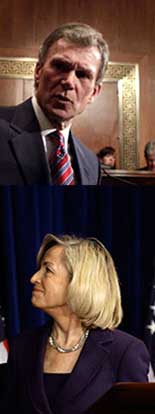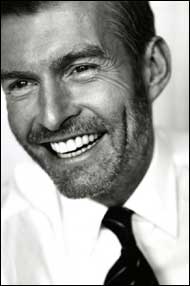 Tom Daschle (Photo: Brendan Smialowski/The New York Times), Nancy Killefer (Photo: Doug Mills/The New York Times).
Tom Daschle (Photo: Brendan Smialowski/The New York Times), Nancy Killefer (Photo: Doug Mills/The New York Times).So today is a two-fer: both Tom Daschle and Nancy Killefer will not be joining the Obama administration, as planned, as Health and Human Services secretary and chief performance officer, respectively.
They were both undone by failure to pay taxes.
Tim Geithner, meanwhile, the new Treasury secretary, was recently confirmed by the Senate despite his own tax failures.
Good God: what does it say about the U.S. tax code that people like Geithner, Daschle, and Killefer haven’t properly paid their taxes?
(By “people like” them, I mean people who are smart and accomplished, have been through many application and vetting processes in their careers, and above all have reason to comply with tax-paying.)
Here, we’ll make it a quiz:
A. If all three of them were intentionally cheating (and getting away with it until high-level scrutiny), then it’s much too easy to cheat on taxes.
B. If all of them made honest mistakes, then the tax code simply isn’t working.
C. If there’s some combination of cheating and mistakes, then it’s too easy to cheat and the tax code isn’t working.
I’d vote for C. We wrote a column about tax cheating a while back. It included this passage: Read more…






















